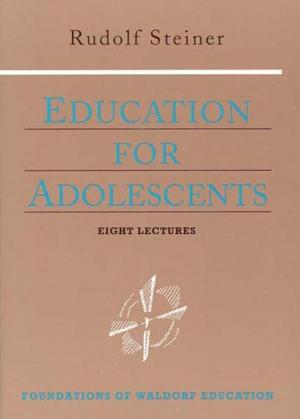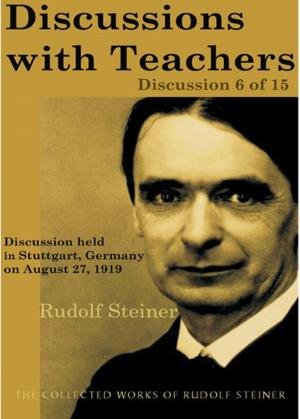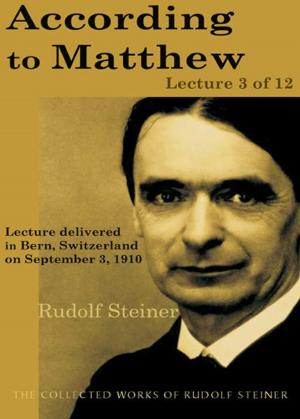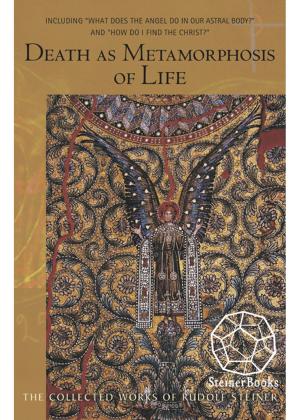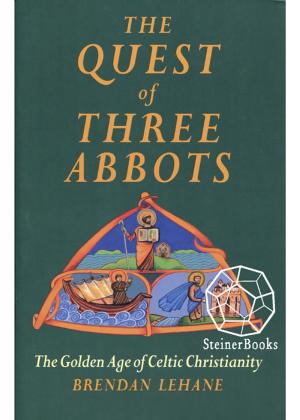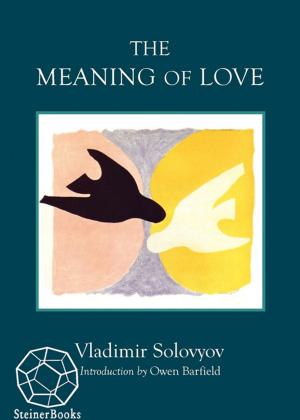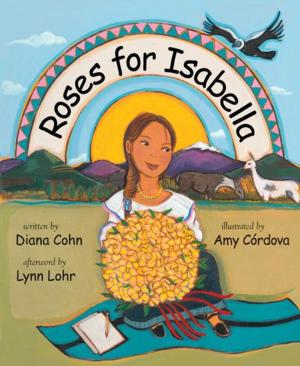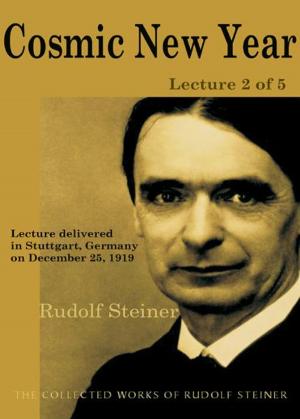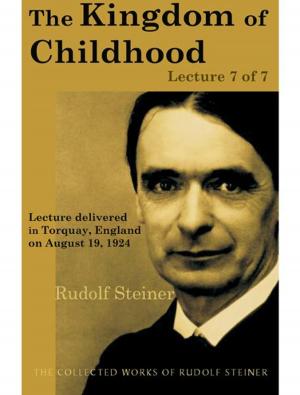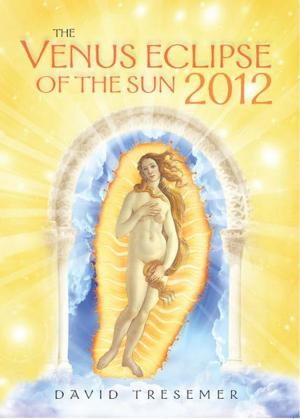The Kingdom of Childhood: Lecture 3 of 7
Nonfiction, Reference & Language, Education & Teaching, Educational Theory, Philosophy & Social Aspects| Author: | Rudolf Steiner | ISBN: | 9780880107716 |
| Publisher: | Steinerbooks | Publication: | June 1, 1995 |
| Imprint: | SteinerBooks, Collected Works 311 | Language: | English |
| Author: | Rudolf Steiner |
| ISBN: | 9780880107716 |
| Publisher: | Steinerbooks |
| Publication: | June 1, 1995 |
| Imprint: | SteinerBooks, Collected Works 311 |
| Language: | English |
This lecture is part of the collection "The Kingdom of Childhood" by Rudolf Steiner. Steiner (1861-1925) was an Austrian philosopher, social reformer, architect, and esotericist. He gained initial recognition as a literary critic and cultural philosopher. At the beginning of the 20th century, he founded a spiritual movement, Anthroposophy. He is considered the father of Waldorf education, biodynamic agriculture, anthroposophical medicine and spiritual science. How to teach about plants and animals (seven to fourteen). Plants must always be considered, not as specimens, but growing in the soil. The plant belongs to the earth. This is the true picture and gives the child an inward joy. Animals must be spoken of always in connection with humans. All animal qualities and physical characteristics are to be found, in some form, in the human being. Humans as synthesis of the whole animal kingdom. Minerals should not be introduced until twelfth year. History should first be presented in living, imaginative pictures, through legends, myths, and stories. Only at eleven or twelve should any teaching be based on cause and effect, which is foreign to the young childs nature. Some thoughts on punishment, with examples. The entire Collected Works of Rudolf Steiner are available from SteinerBooks.
This lecture is part of the collection "The Kingdom of Childhood" by Rudolf Steiner. Steiner (1861-1925) was an Austrian philosopher, social reformer, architect, and esotericist. He gained initial recognition as a literary critic and cultural philosopher. At the beginning of the 20th century, he founded a spiritual movement, Anthroposophy. He is considered the father of Waldorf education, biodynamic agriculture, anthroposophical medicine and spiritual science. How to teach about plants and animals (seven to fourteen). Plants must always be considered, not as specimens, but growing in the soil. The plant belongs to the earth. This is the true picture and gives the child an inward joy. Animals must be spoken of always in connection with humans. All animal qualities and physical characteristics are to be found, in some form, in the human being. Humans as synthesis of the whole animal kingdom. Minerals should not be introduced until twelfth year. History should first be presented in living, imaginative pictures, through legends, myths, and stories. Only at eleven or twelve should any teaching be based on cause and effect, which is foreign to the young childs nature. Some thoughts on punishment, with examples. The entire Collected Works of Rudolf Steiner are available from SteinerBooks.

